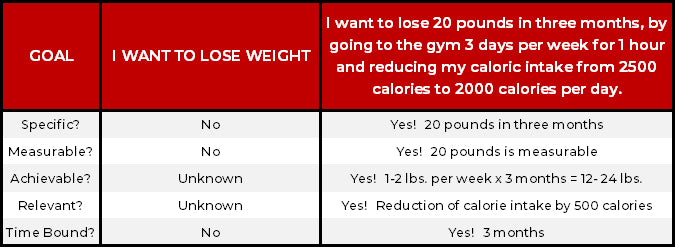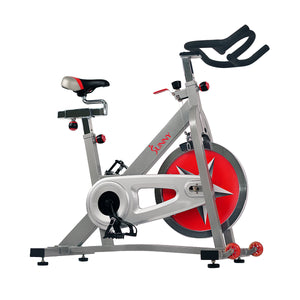Have you ever set a goal that you did not achieve? If you are like many individuals that struggle to reach their health and fitness goals, your problem might be that the goals you are setting are unrealistic. This article will look at the first of five weight management behaviors you can use to ensure success during your health and fitness journey. Your first step is to make sure the goals you are setting are realistic.
By setting goals that are unrealistic, you will ultimately be setting yourself up for failure which can lead to a loss of motivation and possibly falling back into your unhealthy behaviors. This can lead to constant struggles with adhering to a health and fitness program throughout your life. Let’s use weight loss as an example. Having a goal of losing 30 pounds in a month is unrealistic. On average, most people can only expect to lose 1-2 pounds per week. So, setting a goal of losing 30 pounds in 4 to 5 months would be more realistic.
So how do you set a realistic goal? First, your goal must be specific, saying you’re going to start working out is not specific, deciding to schedule your workout days and the amount of time you can commit to each week for the next 3 months is a more specific goal.
Second, you must be able to measure progress, if I set a goal to lose weight but don’t have a scale, then I cannot measure my progress accurately. Losing 10 pounds in 6 weeks is a measurable goal if you have an accurate way to measure weight loss over the 6 weeks of your program.
Third, and maybe most important is asking yourself if the goal you set is achievable. Making it to the gym every day for 4 hours may not be achievable for you but spending 30 minutes every day walking outside after dinner might be. The goal is to set yourself up for success, so you can build off your progress.
Fourth, ask yourself if your goal is relevant. If you have a goal to lose weight, but you are still consuming to many calories, then your goal of weight loss would not be relevant because you have not made the necessary changes in your diet to accomplish that goal.
Finally, make sure your goal is time bound. Giving yourself a specific time frame to accomplish your goal can create a sense of urgency that will keep you motivated long term.
What you will find when you start setting realistic goals, is that you feel much more accomplished when you can successfully stick to a program and accomplish your goals! This can lead to longer program adherence, and a greater chance of meeting your health and fitness goals.
Look at the table below to see how an unrealistic goal compares with a realistic goal.


























Add Your Name & Email
Please enter your name and email to continue.We won’t display your email publicly.